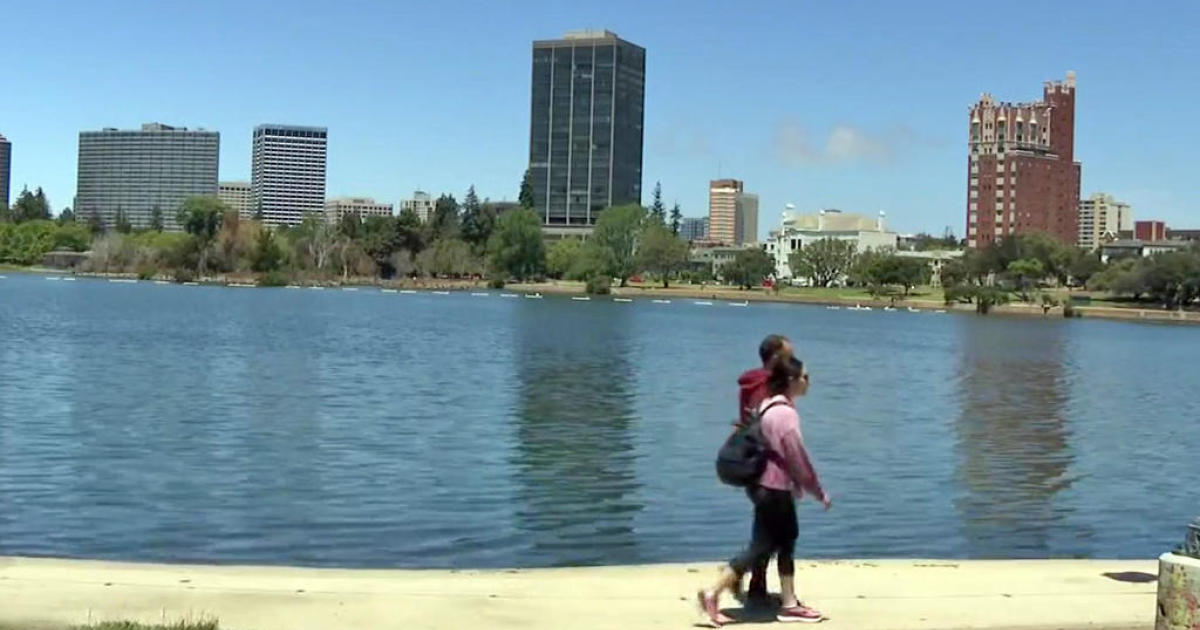California Teachers Struggle As School Administrators Get Generous Pensions
SAN MATEO (KPIX 5) -- As California public schools face layoffs and budget cuts, some school administrators are retiring with huge pensions.
School districts across the state are struggling to pay for the rapidly rising cost of pensions.
Both teachers and administrators pay into the same fund. But when the time comes to retire, it's not a level playing field.
From coaching Little League to teaching English, David Pickett's daily duties keep growing. The problem is his paycheck keeps shrinking.
"Between health insurance to cover our family, then pension, plus taxes, I think everything just kind of adds up," he said.
The San Mateo middle school teacher's pension costs alone are up 53 percent from two years ago.
It's all part of a plan to salvage the California State Teachers' Retirement System (CalSTRS), that's currently facing a $97 billion unfunded liability. Everyone's paying the price, including taxpayers.
But we found the benefits of the bailout are not being shared equally.
That's because school administrators' salaries are set by school boards that can approve big pay raises in the last three years or even just the last year of service, the years that determine the pension amount.
Teachers' salaries on the other hand, are limited by collective bargaining agreements.
"No one's pension should be based on the last 12 months of a 30-year career," said Joe Nation, professor of the practice of public policy at Stanford University.
Nation says the rules for administrators encourage spiking, the practice of boosting earnings at the end of a career in order to get a bigger pension.
"If you pay that superintendent or senior administrator that sort of pension, then that means you have less to be able to hire new teachers, you have less to be able to build new buildings. Everyone gets hurt in the end," Nation said.
After months of delay, CalSTRS finally handed over compensation data that clearly shows the disparity.
The top 100 retirees -- all school administrators -- got an average 15.8 percent pay raise over their last three years of service. Substantially increasing their monthly pensions.
The bottom 100 retirees, all teachers, averaged only 3.8 percent.
Take former Beverly Hills Superintendent Steve Kessler. He went from making $112,000 as a school principal to $249,000 as superintendent.
Thanks to that 120 percent pay raise over his last three years, the highest statewide, his pension is set for life at just over $16,700 a month.
Here in the Bay Area, Dr. Suzanne Roy from the Belmont Redwood Shores Unified School District had been earning $128,000 a year as assistant superintendent. But in her last year of service she got promoted to co-interim superintendent with a salary of $186,000.
That's a 44 percent single year raise -- the highest in the Bay Area -- boosting her pension to just over $10,300 a month.
Dublin Unified School District's retired assistant superintendent Dr. Tim McCarty had the highest three-year surge in the Bay Area. His compensation went from $148,000 to $203,000 in his final year, an almost 37 percent raise that boosted his pension to $17,200 a month.
"There could be legitimate reasons for a pay increase at the end of someone's career," said CalSTRS spokesperson Grant Boyken.
He says his agency has doubled its auditing staff since 2012 to make sure the reasons are legitimate.
But we found more auditors hasn't led to more audits.
CalSTRS audited 45 school districts last year, out of more than a thousand.
The agency has not accused the administrators of spiking in these three case, but we wanted to know if -- in general -- school administrators try to game the system.
Boyken's response: "I can't answer that, but when we investigate cases we find that only a very small percentage do. We take spiking very seriously, but we don't find it that often."
Professor Nation isn't buying that.
"If you set up a system that allows people to game it, and take advantage of it, people will game and take advantage of it," he said. "You can't really blame people. You need to blame the people who set up the system."
It all doesn't quite add up for teacher David Pickett.
"Certainly, teachers aren't able to really do it. It's disappointing that everyone is not on a level playing field," he said.
We reached out to the three districts involved.
Beverly Hills Unified's Chief Human Resources officer told us she had no comment about Steve Kessler, though we did learn through local news reports that in a surprise move he retired half-way through his three year superintendent contract.
Belmont Redwood Shores Unified's school board president told us Dr. Suzanne Roy was one of two assistant superintendents that were promoted to co-interim superintendents, but those two positions were eliminated for that year, so the district saved money by consolidating three jobs into two.
And Dublin Unified's school board president told us Dr. Tim McCarty's income surged because it was "restructured" to include extra stipends. As of air date, we still hadn't heard back on what those stipends were for.



